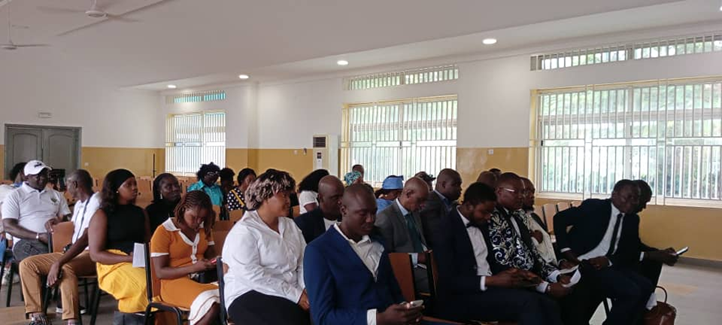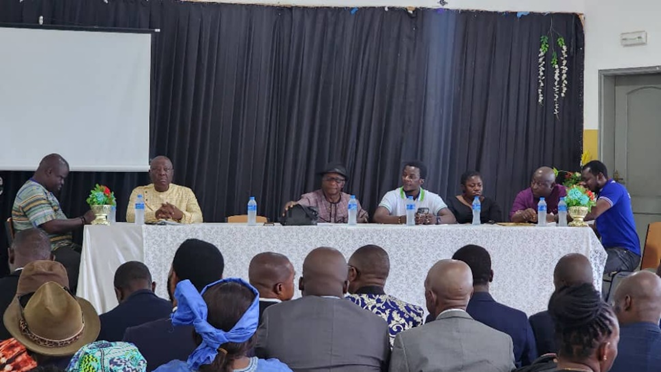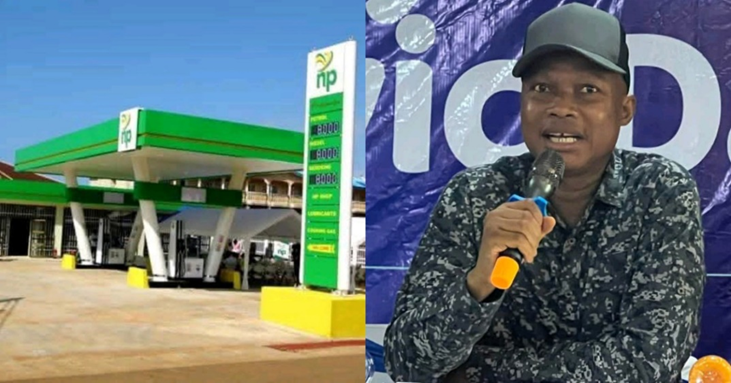By Mahamood Fofanah
Calls for greater inclusion of women in sports journalism dominated discussions as the Sports Writers Association of Sierra Leone (SWASAL), in partnership with the Department of Human Kinetics and Sports at Fourah Bay College, University of Sierra Leone, celebrated the certification of twelve journalists after completing an intensive two-week short course in Sports Ethics, Administration, and Management. The ceremony, held on September 25, 2025, in Freetown, marked a significant milestone for sports media development in the country.
The initiative, which sought to enhance the professional capacity of sports journalists, was the first of its kind in SWASAL’s fifty-one-year history. Established in 1974, the association has long advocated for professional growth among its members, but this marks the first formal collaboration with an academic institution for a structured capacity-building program.
Speaking at the ceremony, SWASAL President, Sahr Moris Junior, expressed immense pride in the achievement, describing it as a landmark step in the association’s journey toward professionalism. “I feel proud as president because I have always wanted to see my colleagues build their capacities and take sports journalism to a higher standard,” he said. “This is just the beginning. Even if not under my tenure, the foundation has been laid for others to build upon.”
The course attracted ten SWASAL members and two non-members — but only one of the twelve participants was a woman, highlighting an ongoing gender imbalance in the field. This disparity drew attention from several speakers who called for deliberate efforts to promote female participation in future programs.
Joseph Kargbo, one of the participants, commended SWASAL for organizing the course but stressed the urgent need to empower more women in sports journalism. “Out of twelve participants, only one was female. That shows a serious gap we must address,” he emphasized. “Sports is not limited to men. Women should also be given opportunities to develop and lead in this profession.”
Kargbo’s remarks struck a chord with many attendees who acknowledged that while Sierra Leone has seen a steady rise in the number of women entering media and sports-related roles, barriers such as limited access to training, societal stereotypes, and unequal representation continue to restrict progress.
Reginald Sawyarr, another participant, echoed Kargbo’s sentiments while reflecting on the broader value of the training. He described the course as transformative, providing not just theoretical knowledge but also practical insights into sports administration, management, and ethics. “As a sports journalist, having this kind of training is huge,” Sawyarr said. “It enhances our understanding of the industry, and because it is grounded in administration and management, it makes it easier for journalists to transition into leadership and administrative roles within sports organizations.”

The course content covered diverse areas, including sports governance, ethical reporting, management principles, and the role of journalism in promoting integrity and fairness in sports. Facilitators from the University of Sierra Leone commended participants for their enthusiasm and encouraged SWASAL to continue such partnerships that bridge academia and professional practice.
In closing, President Sahr Moris reaffirmed his administration’s commitment to continuous learning and development within the association. He revealed that discussions were already underway for additional programs that would build on this success, including digital media training and workshops on sports commentary and broadcasting.
He also acknowledged the concerns raised about gender inclusion, assuring members that future training sessions would prioritize female participation and mentorship initiatives aimed at grooming young women interested in sports journalism.
The certification of the twelve journalists, though modest in number, represents a renewed chapter for SWASAL — one defined by collaboration, capacity-building, and a growing recognition that progress in sports journalism must include equal opportunity for both men and women.



